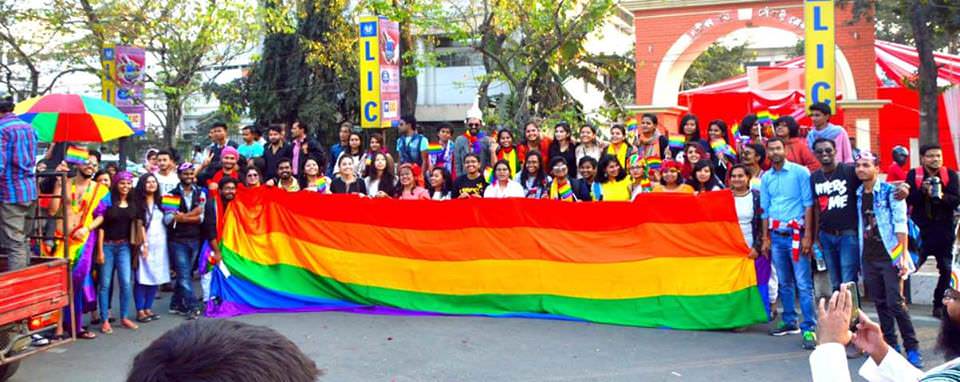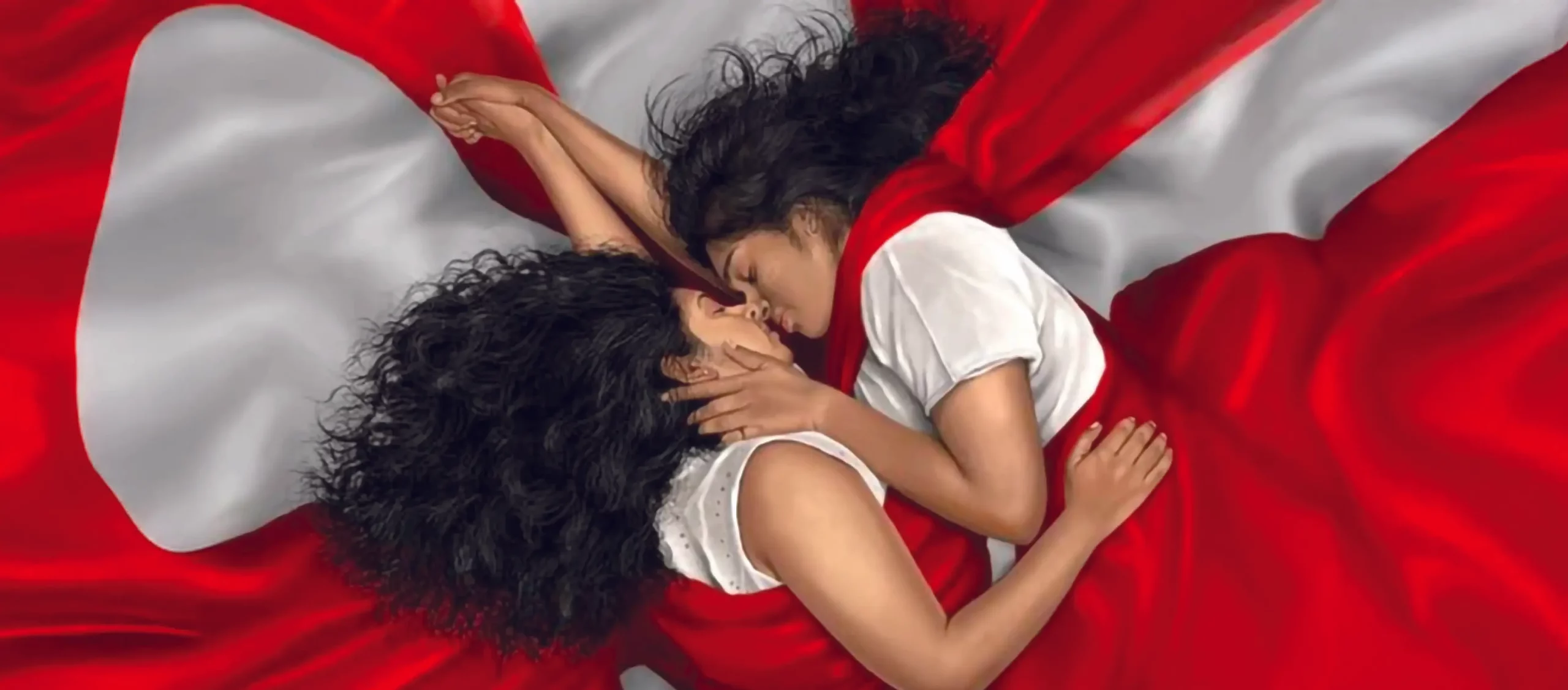Xukia is an informal youth led LGBTQIA+ organisation in Guwahati, Assam. It is one of the first LGBTQIA+ organisations in North East India. In 2014, the region witnessed it’s first Pride Walk in Guwahati, which was organised by Xukia. They have been successfully organising a pride walk every year. This group of young people are creating awareness about LGBTQIA+ in the city and the region through innovative methods like flash mobs, film screenings, etc. Recently, they started publishing a multilingual LGBTQIA+ magazine, Forbidden: Ek Xukia Dristanto (Xukia’s perspective of the forbidden).
Having followed them for some time, I had the pleasure of interviewing Xukia on behalf of FII. Being one of the first queer support groups in the North East, it was extremely interesting to learn their experience.
SD: Xukia is one of the first Queer collectives in the North Eastern region. How was Xukia as an organisation created?
X: In the aftermath of the Supreme Court verdict on Section 377 on 11th December 2013, a group of people, mostly women came together to organise a protest on 15th December in Guwahati (simultaneous demonstrations were held around India on that day under the name Global Day of Rage). This was the first ever public demonstration in Assam on LGBTQIA+ rights. Following this, the first Pride Walk of North Eastern region was organised in Guwahati in February, 2014, shortly after which Xukia as a collective was conceived.
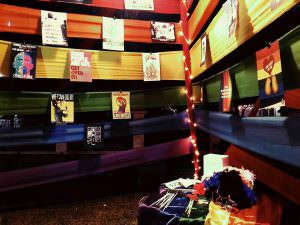
An exhibition held by Xukia
SD: What are your main initiatives?
X: Xukia is actively involved in organising the annual Pride Walk in Guwahati. It also organised workshops, film screenings, panel discussions etc on LGBTQIA+ issues around the city. Xukia also brings out a multilingual LGBTQIA+ publication called “Forbidden: Ek Xukia Drishtanto” with the aim of creating a platform where community members and allies can express themselves. Xukia is also working towards creating local information resources including an information brochure on LGBTQIA+ rights in English and Assamese.
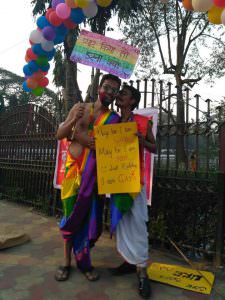
Xukia at the Pride Walk
Also Read: Coming Out Is A Continuous Process And These 4 Things Helped Me
SD: You have successfully organised Pride Walks and the Dialogues– The Queer Film Festival, for the last three years. How do you mobilise people to attend your events?
X: A large part of our mobilisation happens online through social media. We also rely using event flyers and posters to get the information out.
SD: Xukia is presently an informal organisation. Do you plan on becoming a formalised collective, and if so, are there challenges in becoming one, given the nature of your work?
X: Xukia is currently internally debating the issue of becoming a formalised collective. Considering the fact that Xukia is mostly run by volunteers most of who are students, a formalised collective would mean an increase of administrative work. Also, there is an issue of working under a capitalist structure with its own hierarchies and with the right wing specifically targeting anything radical, it becomes a question on how true can we be to our ideologies after being a formalised collective.
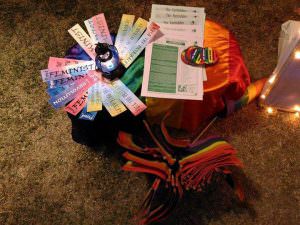
Brochures created by Xukia
SD: How have you challenged homophobic and transphobic sentiments in the media?
X: The visibility of Xukia and its work has helped bring a slight change in the media, with more positive stories being featured on LGBTQIA+ issues. Also, homophobic and transphobic sentiments are getting challenged. For example, in a recent instance a transphobic reporter was challenged for his hate speech and harassment of a trans woman. Xukia successfully put pressure on the media company to terminate his employment.
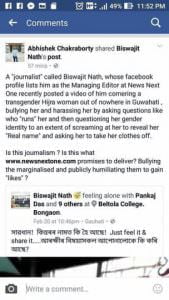
Source: Orinam.net
SD: You have been organising film and video screenings for LGBTQIA+ awareness. How has the response been?
X: We organised these screenings in various parts of the city, and students have been one of the largest groups of people we have reached out to. The response has been completely positive till now with more and more people becoming willing to engage with us on this issue.
SD: You have launched the first multilingual LGBTQIA+ publication, “The Forbidden: Ek Xukia Dristanto”. Tell us more about how you organise this.
X: “Forbidden: Ek Xukia Dristanto” is a multilingual LGBTQIA+ publication that we started with an aim to provide a local platform for community members and their allies to express themselves. We currently carry writings in English, Assamese, Bengali and Hindi. “Forbidden” also helps us disseminate information to the public and each issue carries a bilingual (English and Assamese) FAQ section.
SD: LGBTQIA+ people have been a stigmatised group since long. What are the challenges they face, particularly in the North East?
X: The North Eastern states are extremely diverse and so are the unique challenges faced by the community in each state. The greatest challenge is that there is very less visibility and not enough locally relevant information on LGBTQIA+ issues. The community in the North East is also mostly invisible and there are no proper support structures.
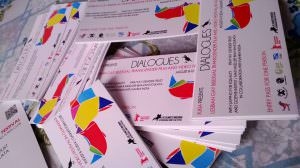
Dialogues – a queer film festival organized by Xukia
SD: Xukia has been successfully organising various events in Guwahati like Pride Walks, Dialogues: The Queer Film Festival to film and video screenings, panel discussions, flash mobs etc. What are your plans for the future? How does Xukia plan to expand?
X: Xukia hopes to continue to create visibility on LGBTQIA+ issues by engaging with more diverse groups of people in the state and also build up a support structure for queer identified people in the region.
Also Read: In A First, Lucknow Holds Uttar Pradesh’s Awadh Queer Pride Parade
FII wishes that Xukia is able to continue their brilliant work and wishes them the very best for their future endeavours.
Featured Image Credit: Xukia Facebook
About the author(s)
Presently pursuing MA in Women's Studies and trying to explore the field of 'Gender and Media'. Strongly interested in writing since childhood.
